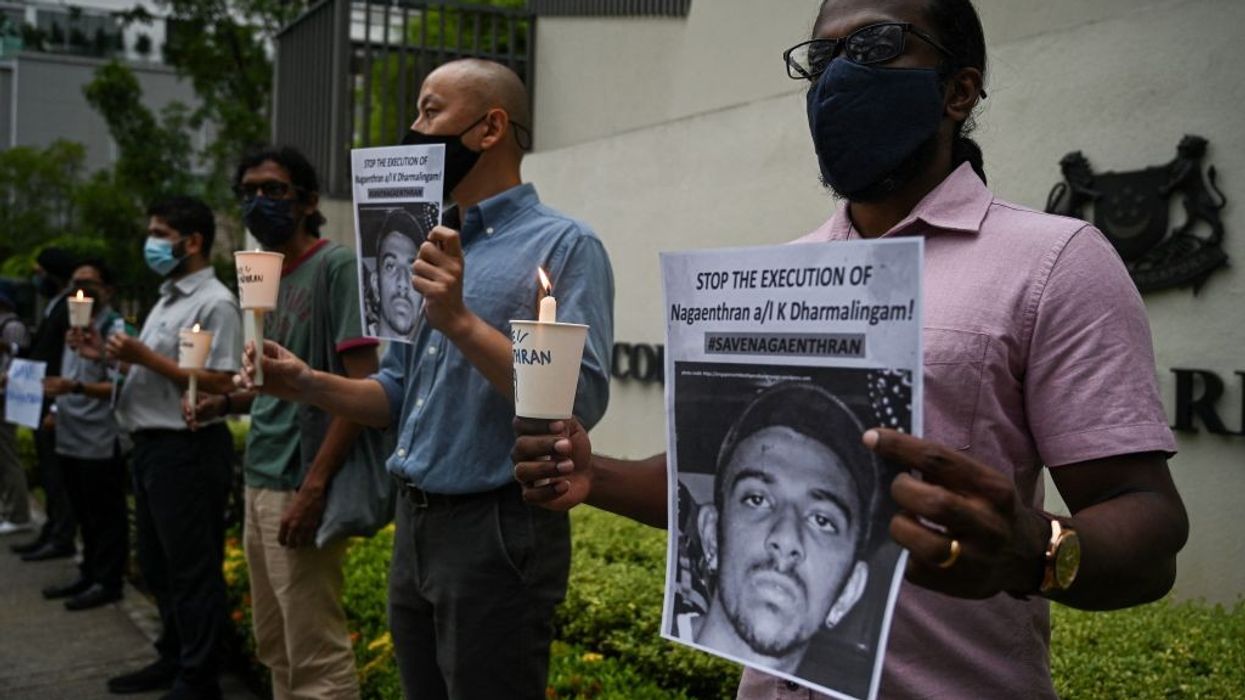SINGAPORE has defended the execution judgement of a 33-year-old Indian-origin Malaysian drug trafficker.
Nagaenthran K Dharmalingam was sentenced to death in 2010 for importing 42.72 grams of heroin into Singapore in 2009 in a bundle-strapped to his thigh.
Both the prime minister and the foreign minister wrote to their Malaysian counterparts, pointing out that the convict has been accorded due process under the law of the country.
Prime minister Lee Hsien Loong and minister for foreign affairs Dr Vivian Balakrishnan have replied to their Malaysian counterparts over the case of Dharmalingam whose execution has been stayed after he tested positive for Covid-19 on Monday (8).
According to Malaysian news agency Bernama, Malaysian prime minister Ismail Sabri Yaakob had reportedly written to his Singaporean counterpart Lee seeking leniency in the case.
"Prime minister Lee Hsien Loong and minister for foreign affairs Dr Vivian Balakrishnan have replied to their Malaysian counterparts to convey that Nagaenthran A/L K Dharmalingam has been accorded full due process under the law," an MFA spokesperson said in response to media queries on Friday (12).
Dharmalingam was just 21 when he was arrested. Defence lawyer M Ravi filed a court application on Monday stating that Dharmalingam possesses the mental age of someone below 18.
He argued that judicial mercy should be exercised to grant Dharmalingam a reprieve from the execution of the death sentence, pending further psychiatric examinations and reports on his mental state.
On Thursday (11), Singapore's ambassador Umej Bhatia told the UN in Geneva that the high court had found Dharmalingam was on borderline intellectual functioning but did not suffer from mild intellectual disability.
Bhatia responded to a joint urgent appeal from four special UN rapporteurs, who on October 29, called on Singapore to definitively halt Dharmalingam's execution, saying he had psychosocial disabilities.
The case drew international attention with an online petition against his death sentence drawing about 70,000 signatures and coverage by international media.





